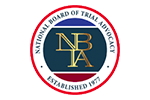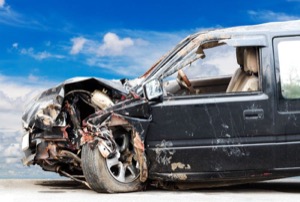YOUR LAWYERS.











Contributory Negligence in North Carolina
If you have a pending “tort claim” related to accident injuries in NC, you need to be aware of a very important defense available to the tortfeasor (the person primarily responsible for the wreck). Your claim for lost wages, medical bills, and compensation for permanent injuries can be denied under Contributory Negligence in North Carolina, or “Contrib.”
“North Carolina is one of the last remaining jurisdictions in the United States that still recognizes the outdated and extraordinarily unfair defense of Contributory Negligence. It’s a harsh law that allows people to avoid personal responsibility for their actions and shift the costs of an accident, normally away from the insurance company, to someone else.”
– Bill Powers, Accident Injury Lawyer Charlotte NC

Prior to deciding the facts of a case, the Jury (Finder of Fact) is instructed by the Judge in the PJI Pattern Jury Instructions:
“Did the plaintiff, by his own negligence, contribute to his injury or damage?”
The Defendant, in a car accident case, trucking accident, motorcycle wreck, or other “personal injury” claim, carries the Burden of Proof to prove to the satisfaction of the Jury that the Plaintiff contributed to her or his own injuries or damages.
The legal standard of proof for Contributory Negligence is “by the greater weight of the evidence” in North Carolina.
The greater weight of the evidence is sometimes referred to as “more likely than not” by courtroom lawyers and Plaintiffs’ Attorneys in North Carolina. That means the Defendant in a civil lawsuit must prove the Plaintiff was negligent in causing their own damages or injuries. The Defendant must also prove the Plaintiff’s negligence was a proximate cause of their own damages or injuries.
The term “A proximate cause” vs. “THE proximate cause” is an important distinction. If the negligence contributed, if only in part to the injury or damages to the Plaintiff, the Plaintiff recovers NOTHING.
It need only be “a proximate cause” and not the only, or sole cause of the accident, wreck, or legal claims for negligence.
The Court further tells the jury:
“If the Plaintiff’s negligence joins with the negligence of the Defendant in proximately causing the Plaintiff’s own injury or damages, it’s called contributory negligence, and the Plaintiff cannot recover.”
It’s important to recognize that there are certain exceptions to the Defense of Contributory Negligence in North Carolina. For example, the test of what is negligence is not the same for a minor plaintiff as an adult. Children between the ages of 14 years old and 7 years old are not held to the same standard of care.
Contributory Negligence in North Carolina also is not presumed from the “mere fact” of damages or injuries to the Plaintiff in a case.
What is Negligence in North Carolina?
Negligence is when someone fails to comply with a required duty or duty of conduct. That duty may be part of the Common Law.
For example, everyone is required to exercise ordinary care to protect themselves from injuries or damage. That is referred to as the Duty to Use Ordinary Care.
Ordinary care is what a prudent or reasonable person does (exercises) under similar or the same circumstances. Failure to exercise ordinary care is a negligent act and may be deemed “negligence.”
Something may also be negligent if a person fails to follow certain standards of conduct as set forth under the written laws.
Those laws are set forth in the North Carolina General Statutes (N.C.G.S.) and may be referred to as a “safety statute.” Those types of protective laws have been enacted as a matter of public policy for the safety of everyone in the public.
Normally you do not have a legal responsibility or “duty” to anticipate someone else acting negligently. You may assume, without indications to the contrary, that other members of society will exercise ordinary care and will follow the safety laws of North Carolina.
That is not an absolute right.
You may not in every instance rely upon the assumption of ordinary care, if you are reasonably put on notice, due to the existing circumstances at the time, that you must take steps to protect yourself or others from harm. In that instance, you are required to use prudent and reasonable care to protect yourself from damages or injury.
What is Proximate Cause in North Carolina?

Put simply, it’s what caused the injury or damages. It is a continuous and natural sequence that results in injuries or damage that can be foreseen by a prudent person exercising ordinary care.
In suing for damages in North Carolina, the Plaintiff has the burden of proving both negligence and proximate cause. There are times when there is more than one proximate cause of damages or an injury or “some similar injurious result.”
The Plaintiff is not required to prove the negligence of the Defendant was the “sole proximate cause” of their injuries, but rather that the Defendant, in acting negligently, was a proximate cause. The standard of proof in North Carolina for negligence claims, as well as proximate cause for injury and damages, is By the Greater Weight of the Evidence.
What is the Doctrine of Sudden Emergency in North Carolina?
What it is not: The Doctrine of Sudden Emergency does not apply in North Carolina if the person, through their own negligence, contributed to or brought about the emergency. In NC, accident injury lawyers tend to see the Doctrine of Sudden Emergency apply in accident cases, like car accidents, motorcycle accidents, and trucking accidents.
The Doctrine of Sudden Emergency relates to ordinary negligence claims, and not those alleging Gross Negligence. It similarly has never been applied in NC claims for medical negligence.
Sudden Emergency is when someone, through no fault or negligence of their own, is unexpectedly confronted with imminent danger. That danger is deemed to be “sudden” and unexpected. In those instances, you are not required to use the same judgment as would be required if there were just more time to make a decision.
In the instance of “sudden emergency” we are required to make a decision that is both reasonable and prudent to under the same or similar circumstances. That is all the NC Accident Laws require.
Call NOW for a FREE CASE EVALUATION
Accident injury cases in North Carolina can involve some pretty complicated legal matters and interpretations of the law.
If you have questions about negligence and claims for damages that resulted from a car wreck, 18 wheeler accident, wrongful death claim, boating accident or other Personal Injury matter, the attorneys at our office provide a free consultation.
Contact Us
- Free Consultation
- 704-342-4357
Personal Injury Law
- Drunk Driver Accidents
- Car Accidents
- Passenger Injuries
- Rear End Collisions
- Subrogation and Insurance Issues
- Bicycle Accidents
- Negligence is not an Accident
- Are Recorded Statements Required?
- Carolina Commercial Vehicle Accidents
- Accidents with Police Cars and Ambulances
- Contributory Negligence in North Carolina
- Discovery Sanctions
Client Reviews
I am so fortunate to have had Bill Powers on my case. Upon our first meeting, Bill insisted that through the emotions of anger, sadness, confusion, and betrayal that I remain resilient. He was available to answer questions with researched, logical, truthful answers throughout our two-year stretch...
I contacted over 20 attorneys and Bill Powers was the only one that got back to me and was willing to help. He was kind and professional. He helped me get answers that I have been trying to get for years. I am so thankful for all his help and would recommend him easily. Simply FANTASTIC.
Bill Powers contacted me very shortly after I submitted an inquiry. He is incredibly knowledgeable about laws and all the requirements in North Carolina. When working with him, he patiently answered any and all questions I had in great detail. I always had the feeling he was looking to help ME, and...
Let Us Help You!
- 1 Over 28 Years of Experience
- 2 Results Oriented
- 3 We Will Fight for You

